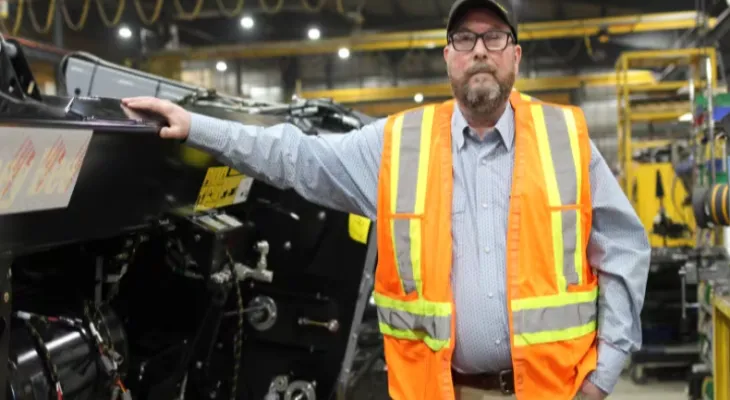Search here
Newspaper
Search here

Arab Canada News
News

Published: March 18, 2024
Honey Bee, located in Frontier, Saskatchewan, a small town with a population of no more than 400 people, has evolved from a family-owned business of two men making heads and belts to a manufacturing company employing nearly 200 people and shipping agricultural attachments worldwide.
But Honey Bee is now facing a new challenge, a more common challenge linked to Silicon Valley.
Just as some devices do not work with charging cables from other companies, some agricultural equipment now comes equipped with technology that prevents farmers from using accessories from other brands – and companies like Honey Bee are concerned about the growing practice.
Jamie Page, General Manager of Honey Bee, said, “It’s becoming more common every day and every year.”
Agricultural equipment has become more digital, prompting some companies to use digital locks. John Schmeiser, President of the North American Equipment Dealers Association, says they say this protects copyrighted technology and prevents piracy.
But he said it can become a problem when digital locks are also used to prevent one brand's products from working with another’s.
He added that Canadians currently cannot bypass these locks without possibly violating copyright law – which can lead to serious penalties, but a change may be on the horizon.
A bill passed by Parliament last year and making its way through the Senate would also amend copyright law, making it legal to bypass digital locks for interoperability purposes.
Both grain farmers and consumer advocates are closely monitoring the issue. Many see the interoperability problem as a branch of the right-to-repair debate, where companies use proprietary technology to prevent customers from repairing their own devices.
Although companies say they support copyright protection, critics say digital locks are used to eliminate competition – and to prevent competitors from developing new products that work with existing ones.
“Can you fix the thing you own? Can you buy products that interact with the thing you own? These are fundamental freedoms,” said Kyle Wiens, a U.S.-based right-to-repair advocate and founder of the online repair site iFixit.
“Interoperability” basically means the ability of one product or system to work with another product or system.
He added, think about how Google Chrome works on an Apple device, although made by different companies.
He confirmed that Apple has faced criticism regarding this issue. For years, its phones did not work with the USB-C connector that became standard for many other devices. That changed after new EU rules, although the company said mandating one type of connector “chokes innovation.”
Comments